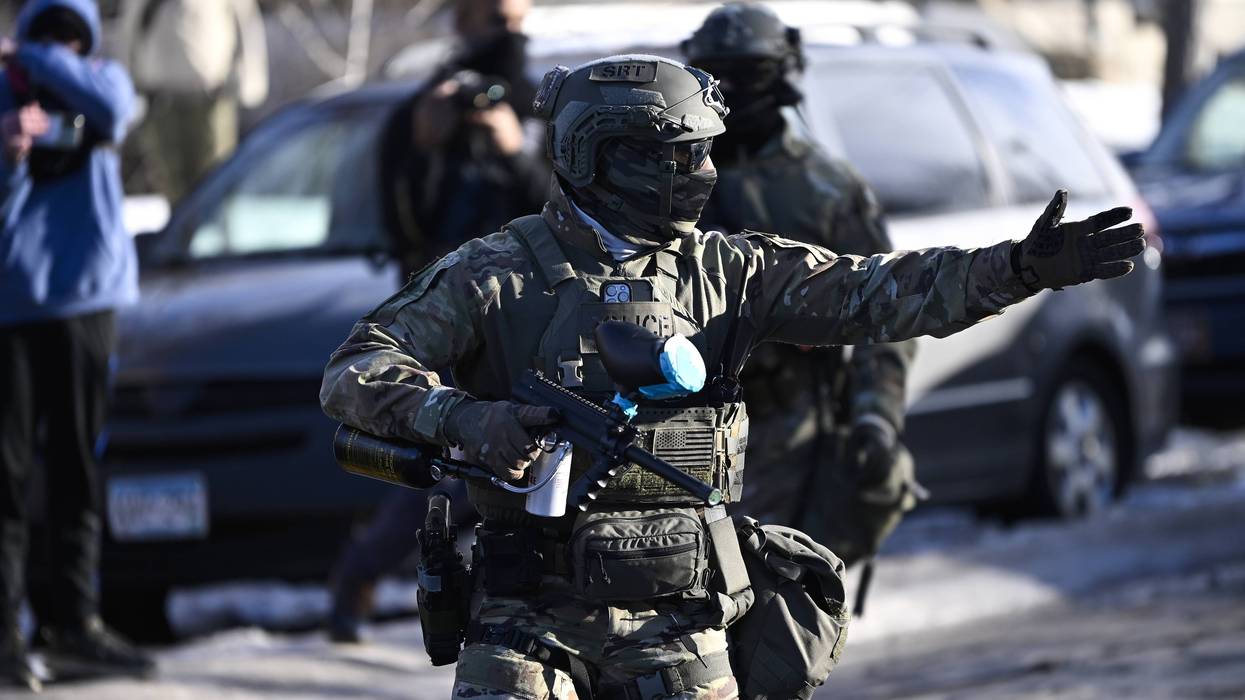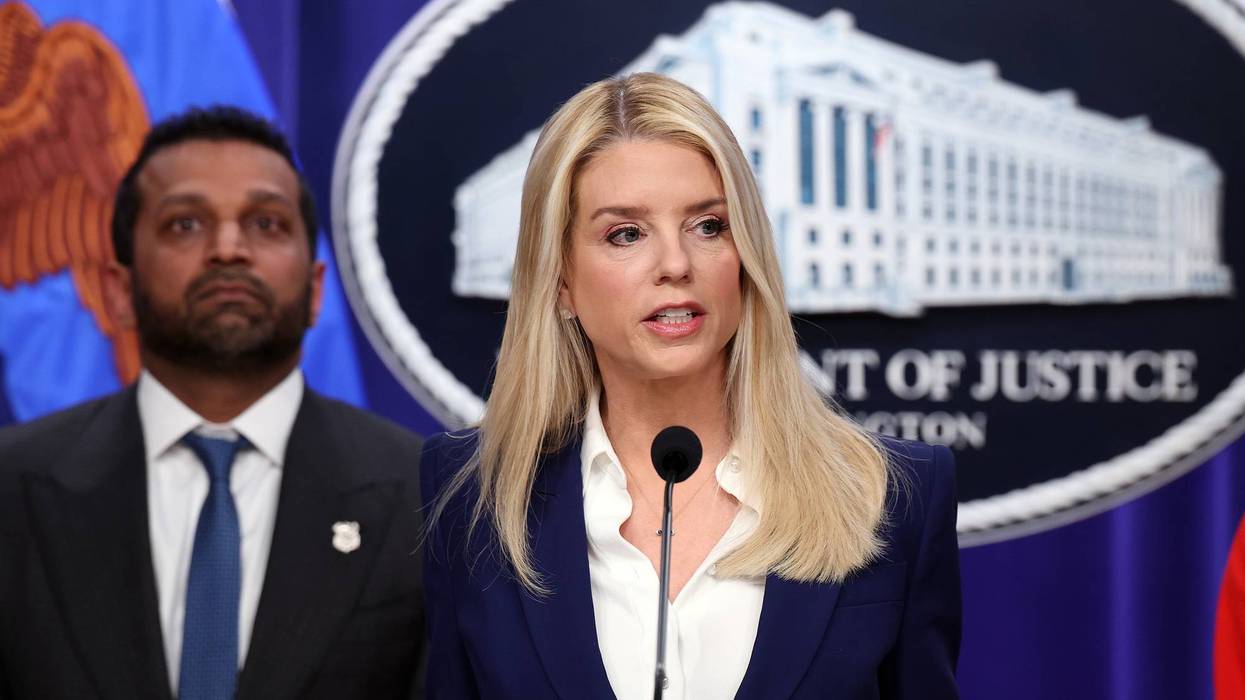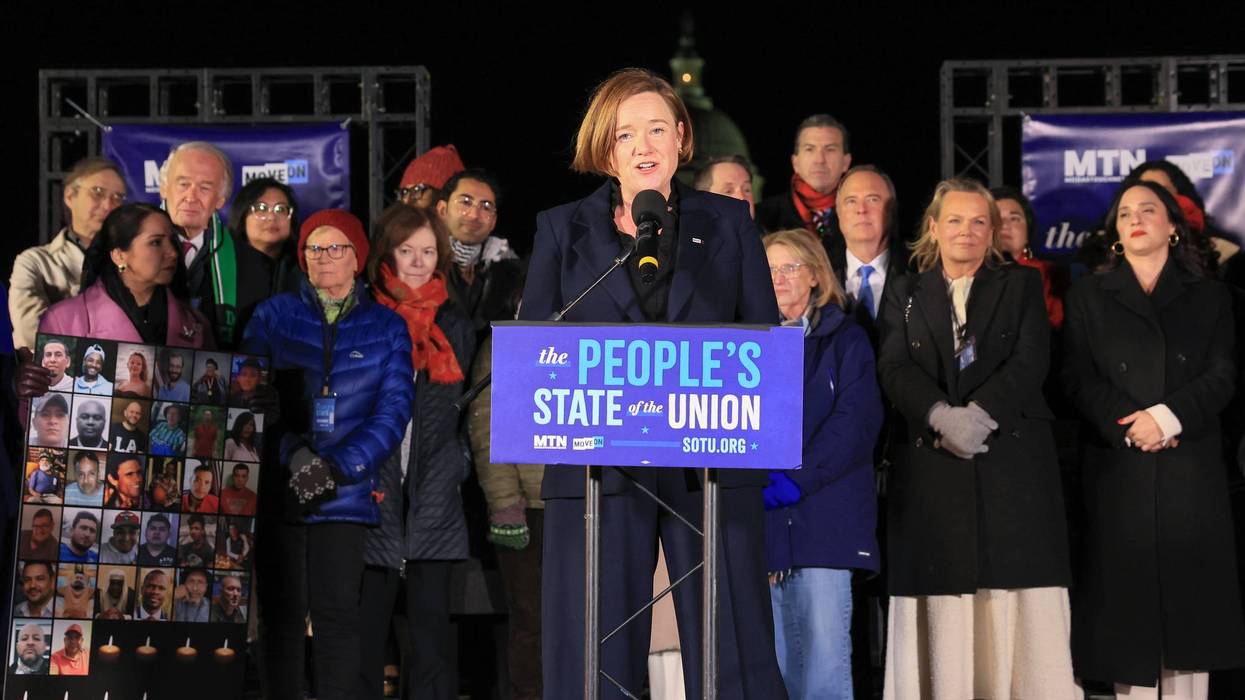June, 30 2010, 10:00am EDT

Sudan: Widespread Abuses Bode Ill for Referendum
Hold Security Forces Accountable for Violations in April 2010 Elections
NAIROBI
Both national and southern Sudanese authorities should investigate human rights abuses connected to its April 2010 elections and bring to justice those responsible, Human Rights Watch said in a new report released today. Addressing the abuses is especially important as the country prepares for a referendum on self-determination in Southern Sudan, Human Rights Watch said.
The 32-page report, "Democracy on Hold: Rights Violations in the April 2010 Elections," documents numerous rights violations across Sudan by both northern and southern authorities in the period leading up to, during, and following the April elections. These abuses include restrictions on freedom of speech and assembly, particularly in northern Sudan, and widespread intimidation, arbitrary arrests, and physical violence against monitors and opponents of the incumbent parties by Sudanese security forces across the country. The report is based on research carried out between November 2009 and April 2010 in Khartoum and Southern Sudan.
"The national elections were an important milestone of the 2005 peace agreement, which was meant to pave the way forward for Sudan," said Rona Peligal, Africa director at Human Rights Watch. "But pushing the elections-related abuses under the rug would not bode well for the referendum coming up in January."
The 2005 Comprehensive Peace Agreement, which ended 22 years of civil war between northern and southern forces, called for Sudan to hold national elections and a referendum on southern self-determination. Southern Sudanese, including more than 1.5 million southerners living in Khartoum and northern states, will decide in the January 2011 vote whether to secede from the north.
Human Rights Watch called on the national unity government to enact genuine reforms called for in the peace agreement, including improvements to the national security apparatus. The national security law currently grants broad powers of search, seizure, and arrest, and allows for detention without judicial review for up to four and a half months, in violation of international law.
Human Rights Watch found that in the months leading up to the April elections the ruling National Congress Party suppressed peaceful assembly by opposition party members in the north and prevented free association and speech. During election week, there were fewer cases of such restrictions, but several cases of harassment, intimidation, and arrest of opposition members and elections observers.
In Southern Sudan, Human Rights Watch documented widespread intimidation, arbitrary arrest, detention, and mistreatment of opponents of the southern ruling Sudan People's Liberation Movement (SPLM), as well as of election observers and voters, throughout the elections process in several southern states.
In addition to these rights violations, serious irregularities in the conduct of the election - such as multiple voting, ballot-stuffing, and other acts of fraud - undermined their legitimacy.
On April 26, the elections commission declared both ruling parties the winners in their regions following the vote-counting. Omar al-Bashir, who is wanted by the International Criminal Court on charges of war crimes and crimes against humanity committed in Darfur, was re-elected president of the national unity government.
In the weeks following the April elections, Human Rights Watch documented a worsening human rights situation across Sudan, with renewed repression in the north, incidents of elections-related violence in the south, and ongoing conflict in Darfur.
Human Rights Watch also called on Sudan to cooperate with the International Criminal Court, as required under United Nations Security Council Resolution 1593.
"The elections were supposed to help expand democracy in Sudan, but they have had the opposite effect," Peligal said. "The electoral victory has essentially emboldened the ruling parties, particularly in the north, to crack down on opponents, activists, and journalists."
The post-election crackdown in Khartoum included the May 15 arrest and detention of the opposition figure Hassan al-Turabi and of journalists, the arrest of Darfuri students, and the resumption of pre-print censorship leading to the suspension of three newspapers.
In early June, security forces violently repressed a peaceful demonstration by Sudanese doctors striking for better wages and working conditions, and detained six doctors without charge until June 24, when the doctors called off the strike. Two of them were subjected to physical mistreatment by national security officials.
In Southern Sudan, simmering disputes over election results between the ruling party and independent candidates have led to clashes between armed forces. In Jonglei state, for example, forces loyal to General George Athor, who unsuccessfully ran for state governor, have clashed with the southern army on multiple occasions since the results were announced. Vote-rigging and intimidation during the elections have led to anger and frustration in the south.
In Darfur, where many communities boycotted the elections process, the Sudanese government continues to carry out armed attacks on rebel factions and civilians, using both aerial bombs and ground forces. In May, this violence caused the highest death tolls in two years.
"Democracy on Hold" also examines the reaction of the international community to the widespread abuses during the elections. The report highlights how political considerations related to efforts to carry out the 2005 agreement, in particular the referendum, have made many international actors reluctant to criticize Sudan's human rights record.
"Sudan's international partners have a critical role to play in urging Sudanese authorities to end impunity for abuses," Peligal said. "Timid silence on their part will both jeopardize the prospects for a peaceful and meaningful referendum and derail the democratic transformation envisioned by the peace agreement."
Human Rights Watch is one of the world's leading independent organizations dedicated to defending and protecting human rights. By focusing international attention where human rights are violated, we give voice to the oppressed and hold oppressors accountable for their crimes. Our rigorous, objective investigations and strategic, targeted advocacy build intense pressure for action and raise the cost of human rights abuse. For 30 years, Human Rights Watch has worked tenaciously to lay the legal and moral groundwork for deep-rooted change and has fought to bring greater justice and security to people around the world.
LATEST NEWS
'Heavily Armed Secret Police Force': ICE, CBP Amass $144 Million Weapons Stockpile
"In just one year, ICE’s spending commitments on weapons, ammunition, and accessories surged fourfold."
Feb 25, 2026
A report produced by the office of Sen. Adam Schiff reveals that federal immigration enforcement agencies amassed a gigantic weapons stockpile during the first year of President Donald Trump's second term.
In total, the report released by Schiff (D-Calif.) finds that US Immigration and Customs Enforcement (ICE) and Customs and Border Protection (CBP) committed to spending over $144 million on weapons and ammunition over the last year, a massive increase over these agencies' spending on weapons in years past.
"In just one year, ICE’s spending commitments on weapons, ammunition, and accessories surged fourfold—an increase of over 360 percent—when compared to ICE’s contracts in 2024," states the report. "In 2025, CBP’s contracts for weapons, ammunition, and accessories doubled when compared to CBP’s 2024 contract totals."
The report documents how both agencies have combined to spend tens of millions of dollars purchasing lethal weapons, including "AR-style rifles, pistols, and large quantities of accessories, such as optical sights for firearms and suppressors"; so-called "less-lethal" weapons including "TASERs, pepper sprays, tear gas canisters, and canister launchers"; and assorted kinds of ammunition.
The report adds that "records show that DHS’s procurement of weapons at immense scale is just beginning, as these contract awards contemplate even greater spending moving forward," which it says should serve "as a stark warning to the American public."
Schiff's report concludes with a warning about the US Department of Homeland Security's (DHS) "growing plans to build a heavily-armed domestic police force," adding that federal immigration agents' killings of Minneapolis residents Renee Good and Alex Pretti could only be the first of many tragedies to come.
In an analysis of the Schiff report published Wednesday, the New Republic's Greg Sargent argued that the Trump administration is trying to launch a domestic "war on terrorism" by bringing the kind of violence the US has deployed overseas back to the homeland.
"In a sense, we’re seeing yet more cancerous growth of the post-September 11 national security bureaucracy, but with a more intensified inward focus," wrote Sargent, who described ICE and CBP under Trump as a "heavily armed secret police force" in a Wednesday social media post.
Georgetown University law professor Rosa Brooks told Sargent that the dangers posed by ICE and CBP could outlast Trump's presidency.
"Trump is building up a well-funded, poorly trained paramilitary force that could easily take on a life of its own,” Brooks explained. “Once you have a massive moneymaking machine ginned up, it’s hard to reverse course and turn off the spigot.”
Keep ReadingShow Less
'Huge Win': Judge Bars Trump DOJ From Searching Devices of Washington Post Journalist
One press freedom group called the raid on Hannah Natanson's home last month a "warning shot to journalists and whistleblowers nationwide."
Feb 25, 2026
A federal judge ruled Tuesday that the US Justice Department cannot search the devices it seized from Hannah Natanson, a Washington Post journalist whose home was raided by the FBI earlier this year as part of an investigation into a government contractor.
William Porter, magistrate judge of the US District Court for the Eastern District of Virginia's Arlington Division, wrote in his 22-page decision that the Trump administration's "failure to identify and analyze" the Privacy Protection Act (PPA) in its application for a search warrant in the case "has seriously undermined the court’s confidence in the government’s disclosures in this proceeding."
The PPA shields journalists from being forced to turn over work materials to law enforcement. During the raid on Natanson's home, FBI agents reportedly seized a phone, two laptops, a recorder, and other devices.
"Many government lawyers had multiple opportunities to identify the PPA as controlling authority and to include an analysis of it in the warrant application," Porter wrote. "None of them did."
Porter added that he hopes "this search was conducted—as the government contends—to gather evidence of a crime in a single case, not to collect information about confidential sources from a reporter who has published articles critical of the administration."
Runa Sandvik, founder of a startup that works to protect journalists' digital security, called the ruling a "huge win for Hannah Natanson and the Washington Post."
The Post noted in its reporting on the decision that federal prosecutors "acknowledged that only a small portion of the information on the devices seized from Natanson would be relevant to the case against" Aurelio Perez-Lugones, a government contractor who was indicted last month on charges of illegally obtaining and sharing classified materials.
Federal prosecutors "asked Porter to allow a government filter team to search through the devices for relevant information," and the team "would then hand over the responsive information to prosecutors," the Post reported.
Porter rejected that proposal in his ruling, citing "documented reporting on government leak investigations and the government’s well-chronicled efforts to stop them."
"Allowing the government’s filter team to search a reporter’s work product—most of which consists of unrelated information from confidential sources—is the equivalent of leaving the government’s fox in charge of the Washington Post’s henhouse,” Porter wrote. “The concern that a filter team may err by neglect, by malice, or by honest difference of opinion is heightened where its institutional interests are so directly at odds with the press freedom values at stake.”
Press freedom organizations have condemned the Trump administration's raid on Natanson's home and seizure of her work devices as an alarming escalation in a broader assault on journalism.
Earlier this month, the Freedom of the Press Foundation filed a complaint against Gordon Kromberg, the federal prosecutor who signed the search warrant application targeting Natanson.
“Kromberg and the government omitted a federal law that should have prohibited the raid of Hannah Natanson’s home when applying for a search warrant," Seth Stern, chief of advocacy for FPF, said in a statement, referring to the Privacy Protection Act. "That choice now threatens to expose Natanson’s sources and cripple her ability to report, while also sending a warning shot to journalists and whistleblowers nationwide."
“Disciplinary bodies cannot look the other way and ignore misconduct that threatens the First Amendment, particularly from an administration with a long history of misleading judges and everyone else," Stern added. "When prosecutors abuse their power to facilitate efforts to silence reporting and intimidate news sources, disciplinary authorities must hold them accountable and impose real consequences.”
Keep ReadingShow Less
Watched by Millions, 'People's State of the Union' Counters Unhinged Trump
"We live in a country where we have one reality for everyday people and another for the rich and the well-connected and the well-protected," said Rep. Summer Lee.
Feb 25, 2026
As President Donald Trump prepared to deliver his State of the Union address on Tuesday to applause from sycophantic Republicans, dozens of Democratic lawmakers, progressive advocates, and people impacted by White House policies gathered on the National Mall to present an alternative assessment of the country's trajectory.
"We live in a country where we have one reality for everyday people and another for the rich and the well-connected and the well-protected," said Rep. Summer Lee (D-Pa.), preempting Trump's claim of a "golden age of America" despite rising costs, deepening inequality, and staggering corruption.
While many Democratic lawmakers opted to attend Trump's speech, saying they did not want the president to deliver his remarks to a House of Representatives full of Republicans, Sen. Chris Murphy (D-Conn.) told the crowd gathered blocks from the US Capitol that "these are not normal times, and Democrats have to stop behaving normally."
Watch the full counter-rally, which organizers said millions watched online:
Among those who joined Democratic lawmakers at the People's State of the Union were Epstein survivors and people harmed by the Trump administration's lawless assault on immigrants, assault on the social safety net, and other policies.
Rep. Greg Casar (D-Texas), chair of the Congressional Progressive Caucus, said during his remarks at Tuesday's rally that "I’m not in the Capitol building tonight because I have a pretty good idea of what's going to happen."
"For an hour or two or three or four, a man who's made $4 billion off of being president is going to lecture you, the American people, about how good you have it," said Casar. "A man who is building himself a golden ballroom is going to tell you that if you're struggling to get by, that's your fault, because he's killing it."
"Everyone but Donald Trump's rich friends knows that it's a disaster," Casar added.
Keep ReadingShow Less
Most Popular


